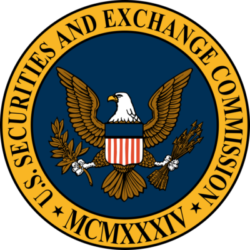
Next Financial Group, Inc., a brokerage firm headquartered in Houston, Texas, has been censured and fined $750,000.00 by Financial Industry Regulatory Authority (FINRA) member in any capacity based upon consenting to findings that the firm failed to create an adequate system to supervise consolidated reports, failed to create written supervisory procedures pertaining to multiple share classes of variable annuities, failed to monitor variable annuity transactions, and failed to implement supervision systems to prevent excessive trading in customer accounts. Letter of Acceptance, Waiver and Consent, No. 2015043319901 (Dec. 6, 2017).
According to the AWC, between May 1, 2014 and September 30, 2015, the firm neglected to create and implement supervisory systems geared for identifying and taking appropriate action on excessive trading. Evidently, the firm failed to revamp its supervisory protocol and procedures after having been sanctioned in 2009 and 2010 by FINRA for the same issue: its failure to utilize appropriate supervisory measures to address excessive trading in customer accounts. The firm reportedly implemented new procedures as a result of FINRA’s former disciplinary action; however, the procedures were not accurately designed to put a stop to the misconduct.
The AWC stated that from May of 2014 to September of 2015, faulty exception reports had been utilized by the firm to identify instances of excessive trading. Apparently, inappropriate parameters were utilized in the design of the exception reports to detect excessive trading, where the firm failed to correctly calculate the turnover rate, volume of transactions, and cost-to-equity ratios. Evidently, the firm neglected to review any exception reports for fourteen months, enabling excessive trading to continue.
The AWC stated that the firm’s Surveillance Department was responsible for generating exception reports; however, the reports were not reviewed. Then, from October of 2014 to September of 2015, the reports were neither established or reviewed by the Surveillance Department. The firm’s Compliance Department apparently failed to become apprised about the failure of those reports to be generated for review.
The AWC then revealed that from January 1, 2014 to December 31, 2015, one of the firm’s stockbrokers traded excessively in a customer’s account. The representative’s excessive trading was reportedly unmonitored for the fourteen months by the Surveillance Department. The AWC stated that over a two-year period, the customer’s account was exposed to a 9.84 turnover rate, and 23.2 percent cost-to-equity ratio. Apparently, commissions of $147,718.00 had been generated through this period, even though the customer’s investment account sustained $391,893.00 in losses.
The AWC indicated that the customer’s objectives for investing consisted of producing income, where the customer had a conservative to moderate tolerance for risk. According to the cost-to-equity ratio, the customer needed a 23.2 percent investment return in her individual retirement account in order to break even. The customer’s other account contained a 20.02 percent cost-to-equity-ratio. Considering the customer’s conservative tolerance for risk, FINRA found that the requirement of generating 20.02 to 23.2 percent returns was not suitable for the customer.
Despite the firm’s awareness of the stockbroker’s trading, the firm reportedly failed to take action or otherwise escalate the situation. Consequently, the trading in the customer’s account persisted through February of 2016 – the point that the customer lodged a complaint with the firm. The stockbroker was fired around the time that the firm settled the customer dispute for $386,646.00 in damages. FINRA found that the firm’s failure to supervise excessive trading in customer accounts was violative of FINRA Rules 2010, 3110 and NASD Rule 3010.
The AWC additionally reported that Next Financial Group failed to supervise variable annuity transactions. Evidently, the firm accumulated $219,000,000.00 in revenue supported by the sales of variable annuities that it effected from July 1, 2012 to April 30, 2014. Evidently; however, the firm failed to make sure that the firm determined suitability of products for customers, which included the suitability of the L share annuity contract sales.
The AWC stated that the firm was already sanctioned for misconduct in 2010, based upon the firm failing to evidence any adequate review of twenty-seven annuity transactions. The firm’s misconduct continued despite having been sanctioned by FINRA, where between August 13, 2012 and April 30, 2014, the Net Financial Group failed to create and establish policies and procedure to uncover instances of inappropriate variable annuity exchange rates. The AWC stated that the firm depended on its principals to review variable annuity transactions to uncover when they occurred at high volumes; however, no tools or guidance had been provided to principals to make determinations of excessive exchanging of annuities.
The AWC stated that between April 1, 2013 and April 30, 2014, supervisory procedures relating to suitability of variable annuity transactions were not enforced by Next Financial Group. Particularly, written supervisory procedures of the firm called for a heightened suitability review of any transaction pertaining to a customer aged sixty-five and older, where the investment into the annuity accounted for fifty percent or more of the customer’s liquid net worth. In those situations, the principal was tasked with documenting the rationale behind the transaction having been approved. Yet, the firm neglected to enforce those procedures. The AWC revealed that forty-five transactions that should have been flagged for review were not subject to a heighted review, and the firm failed to document the basis behind customers’ investments when accounting for fifty percent or more of the customer’s net worth.
The AWC further reported that the firm effected the sales of 617 L share variable annuity contracts; however, there was not supervision established or implement by the firm to make sure that the sales were appropriate. Evidently, the principals and stockbrokers were not provided with information to guide them about the suitability of different share classes of variable annuities. The registered representatives were not provided guidance on how to compare the annuities or determine suitability based on the different surrender charges and fees assessed to customers according to share class. Critically, the AWC stated that the firm failed to inform the registered representatives on how to assess the impact of fees on a customer with a long-term investment horizon when a customer sought to purchase an L share variable annuity contract. FINRA found that the firm’s supervisory failures in this respect was conduct violative of FINRA Rules 2010, 2330(d) and NASD Rule 3010.
Further, the firm reportedly failed to supervise the consolidated reports utilized by registered representatives that had been disseminated to customers. The AWC stated that between August 1, 2013 and April 30, 2014, no supervisory protocol was set forth to ensure that the information contained within consolidated reports had been stated accurately. Evidently, 229 registered representatives submitted reports to customers containing manual entries regarding assets held at outside institutions. The firm failed to request supporting documentation of the valuations used even though this was required by the supervisory protocols. FINRA found that the firm’s supervisory failures constituted violations of FINRA Rules 2010 and NASD Rules 3010(a) and 3010(b).
The information contained herein has been obtained from reliable sources however may not be accurate and is not guaranteed by us. Readers are encouraged to undertake their own independent investigation and evaluation of the relevant facts. All claims and allegations are subject to adjudication, decisions may be subject to appeal, and no inference is intended, nor should any inference be made from any information contained herein from any source.
This posting and the information on our website is for general information purposes only. This content should be not considered legal advice, and any responses, comments, e-mails, other communications do not form any attorney client relationship. Attorney Advertisement. See Important Disclaimer
Guiliano Law Group
Our practice is limited to the representation of investors. We accept representation on a contingent fee basis, meaning there is no cost to you unless we make a recovery for you. There is never any charge for a consultation or an evaluation of your claim. For more information, contact us at (877) SEC-ATTY.
For more information concerning common claims against stockbrokers and investment professionals, please visit us at securitiesarbitrations.com
To learn more about FINRA Securities Arbitration, and the legal process, please visit us at securitiesarbitrations.com







